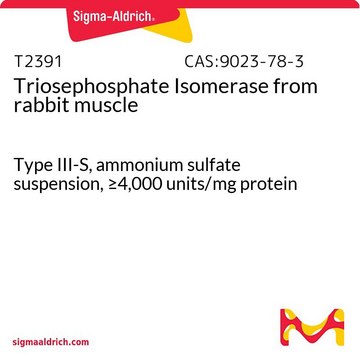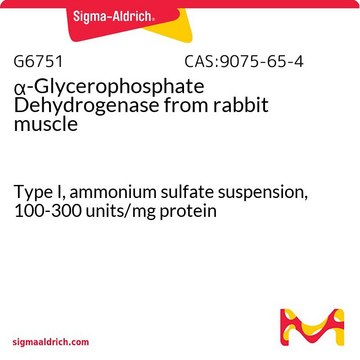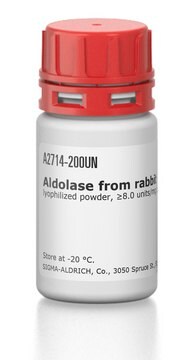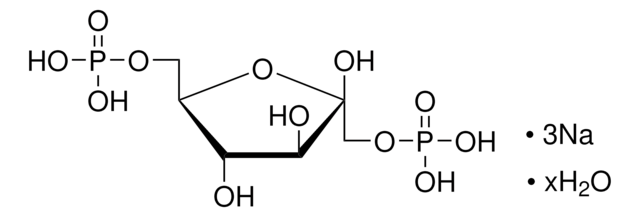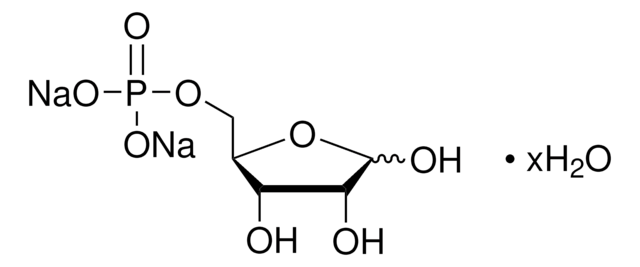G1881
α-Glycerophosphate Dehydrogenase-Triosephosphate Isomerase from rabbit muscle
Type III, ammonium sulfate suspension
Synonym(s):
GDH/TIM, α-GDH-TPI
About This Item
Recommended Products
biological source
rabbit muscle
type
Type III
form
ammonium sulfate suspension
GDH activity
75-200 units/mg protein (biuret)
TPI activity
750-2000 units/mg protein
storage temp.
2-8°C
Looking for similar products? Visit Product Comparison Guide
Related Categories
General description
α-Glycerophosphate Dehydrogenase-Triosephosphate isomerase (α-GDH-TPI or GDH/TIM) is an enzyme mixture of α-glycerophosphate dehydrogenase (GDH) and triosephosphate isomerase (TPI).
Application
Biochem/physiol Actions
Packaging
Unit Definition
Physical form
Storage Class Code
12 - Non Combustible Liquids
WGK
WGK 2
Flash Point(F)
Not applicable
Flash Point(C)
Not applicable
Certificates of Analysis (COA)
Search for Certificates of Analysis (COA) by entering the products Lot/Batch Number. Lot and Batch Numbers can be found on a product’s label following the words ‘Lot’ or ‘Batch’.
Already Own This Product?
Find documentation for the products that you have recently purchased in the Document Library.
Customers Also Viewed
Articles
Instructions for working with enzymes supplied as ammonium sulfate suspensions
Our team of scientists has experience in all areas of research including Life Science, Material Science, Chemical Synthesis, Chromatography, Analytical and many others.
Contact Technical Service